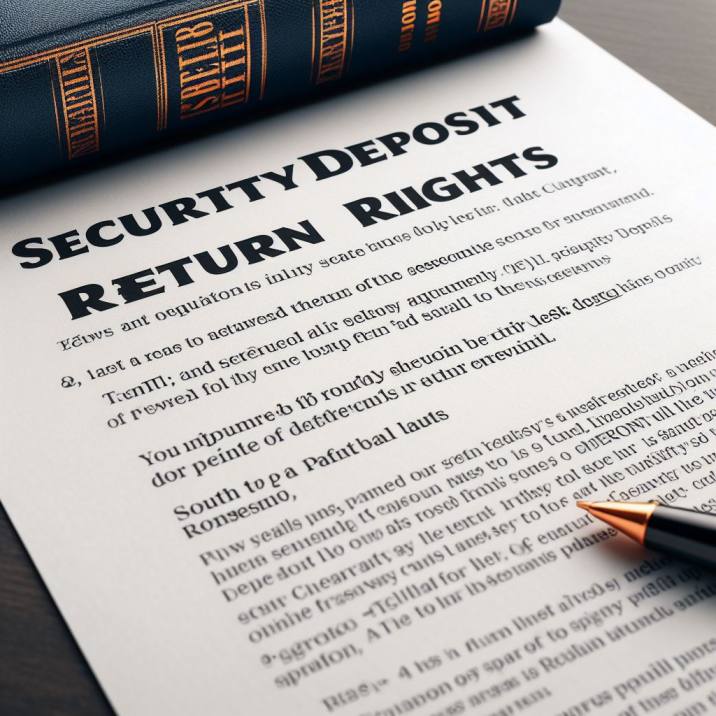Introduction
In the complex landscape of tenant-landlord relationships in India, the issue of unlawful evictions stands out as a significant challenge. Unlawful eviction refers to the practice of forcefully removing tenants from their rented accommodations without following the due process of law. This article aims to provide a comprehensive overview of the legal options available to tenants in India who find themselves facing such predicaments.
Understanding Unlawful Eviction
What Constitutes Unlawful Eviction?
Unlawful eviction encompasses a range of practices, including but not limited to, forcing a tenant out without a legal notice, changing the locks to the property without informing the tenant, or cutting off essential services like water and electricity with the intent of making the living conditions unbearable for the tenant.
Legal Framework Governing Tenant Rights
The rights of tenants in India are protected under various state-specific rental laws and the broader Indian Contract Act, 1872. These laws stipulate the process and conditions under which a landlord can rightfully evict a tenant, ensuring protection against unlawful eviction.
Legal Options For Tenants Facing Unlawful Eviction Practices in India
Filing a Complaint with the Rent Authority
Tenants can file a complaint with the local rent authority or rent control board, highlighting the unlawful practices of the landlord. This body is empowered to investigate and provide remedies to tenants, including restoration of possession or compensation.
Seeking Relief through Civil Court
If the issue is not resolved through the rent authority, tenants have the option to approach the civil court. Filing a suit for injunction against the landlord can help in obtaining a stay order against the eviction until the dispute is resolved.
Criminal Proceedings Against Coercive Eviction
Under the Indian Penal Code (IPC), tenants can file a criminal complaint against landlords who resort to force or intimidation. Sections like 441 (criminal trespass) and 506 (criminal intimidation) of the IPC can be invoked.
Utilizing Legal Aid Services
Tenants facing eviction without proper legal procedure can seek assistance from legal aid services provided by the government or various NGOs. These organizations offer free legal advice and representation to those unable to afford legal services.
Steps to Take Immediately After Facing Unlawful Eviction
- Document Everything: Keep a record of all communications with the landlord and any actions taken by them that contribute to the unlawful eviction.
- Seek Legal Advice: Consult a legal professional to understand the best course of action based on the specific circumstances of your case.
- Report to the Police: In cases of forced eviction, filing a police complaint can provide an immediate but temporary relief against the landlord’s actions.
- Notify the Rent Authority: Informing the rent control board or local rent authority about the unlawful eviction can initiate formal proceedings against the landlord.
Conclusion
Facing an unlawful eviction can be a distressing experience for any tenant. However, the legal framework in India provides several avenues through which tenants can fight back against such practices. By understanding their rights and the legal options available, tenants can effectively challenge unlawful evictions and seek justice. It is imperative for tenants to act promptly and seek legal counsel to navigate through the complexities of the situation.
FAQ on Legal Options For Tenants Facing Unlawful Eviction Practices in India
1. What is considered an unlawful eviction in India?
Answer: Unlawful eviction involves removing tenants without following legal procedures, such as evicting without notice, changing locks, or cutting off utilities.
2. Can a landlord evict a tenant without notice in India?
Answer: No, landlords must provide a legal notice as per the rental agreement and follow the due process outlined in relevant state laws.
3. What legal actions can I take if I’m unlawfully evicted?
Answer: You can file a complaint with the local rent authority, approach a civil court for an injunction, or file a criminal complaint in severe cases of force or intimidation.
4. How long does a landlord have to give notice before eviction?
Answer: The notice period varies by state law but typically ranges from 15 days to 2 months, depending on the agreement and the grounds for eviction.
5. What should I do immediately after an unlawful eviction attempt?
Answer: Document all evidence, seek legal advice, report the attempt to the police, and notify the local rent authority.
6. Can a tenant be evicted for non-payment of rent?
Answer: Yes, but landlords must follow legal procedures, including providing notice and the opportunity for the tenant to pay the due rent before proceeding with eviction.
7. Is changing locks by a landlord considered unlawful eviction?
Answer: Yes, changing locks without notice or court order is considered an unlawful eviction practice.
8. What remedies are available for tenants against unlawful eviction?
Answer: Tenants may seek restoration of possession, compensation for damages, or both, through legal proceedings.
9. Can a landlord cut off utilities as a form of eviction?
Answer: No, cutting off utilities without a legal basis is considered an unlawful eviction practice.
10. What is the role of the Rent Authority in eviction disputes?
Answer: The Rent Authority investigates complaints, mediates disputes, and can order remedies such as reinstatement of tenancy or compensation.
11. How can I prove unlawful eviction in court?
Answer: Through evidence such as communication records with the landlord, witness statements, and documentation of the eviction process.
12. Are there any specific laws for tenant protection in India?
Answer: Yes, each state has its own rental laws, and there are also broader laws like the Indian Contract Act that protect tenant rights.
13. Can a landlord evict a tenant for personal use of the property?
Answer: Yes, but the landlord must provide valid reason, legal notice, and follow the due legal process.
14. What constitutes legal notice for eviction?
Answer: A written notice from the landlord specifying the reason for eviction and the time frame for the tenant to vacate, as required by law.
15. Can I challenge an eviction notice in India?
Answer: Yes, tenants can challenge eviction notices if they believe the eviction is unlawful or the notice is invalid.
16. What is a stay order in the context of eviction?
Answer: A stay order is a legal injunction by a court that temporarily halts the eviction process until a final decision is made.
17. How do criminal charges apply to unlawful evictions?
Answer: Landlords using force or intimidation can face criminal charges under sections like criminal trespass or intimidation of the IPC.
18. What legal aid options are available for tenants?
Answer: Tenants can access government and NGO legal aid services offering free advice and representation for those who can’t afford it.
19. How does the eviction process differ across Indian states?
Answer: The process and notice requirements can vary significantly due to state-specific rental laws.
20. Can a tenant be evicted for violating the rental agreement?
Answer: Yes, but the landlord must provide notice of the breach and allow the tenant an opportunity to rectify the situation before proceeding with eviction.
21. What are the grounds for eviction recognized by Indian law?
Answer: Grounds include non-payment of rent, violation of rental agreement terms, subletting without permission, and the landlord’s need for personal use.
22. Can I be evicted during a pandemic or natural disaster?
Answer: Special regulations may apply during such times, potentially including eviction moratoriums. Legal advice is recommended.
23. What happens if I leave my belongings in the property after eviction?
Answer: Landlords are typically required to give notice before disposing of a tenant’s belongings, but specifics vary by jurisdiction.
24. Are verbal rental agreements valid in eviction cases?
Answer: While less formal, verbal agreements are recognized, but proving terms and conditions can be challenging without written evidence.
25. Can a landlord increase rent to force an eviction?
Answer: Rent increases are subject to state laws and rental agreements; arbitrary increases can be challenged as unlawful.
26. What is the significance of the rental agreement in eviction cases?
Answer: The rental agreement outlines the terms, conditions, and eviction procedures, serving as a key legal document in disputes.
27. Can family members of the landlord request eviction for their use?
Answer: Yes, if the landlord legitimately requires the property for use by immediate family members, but legal procedures must be followed.
28. What if my landlord refuses to accept rent to claim eviction for non-payment?
Answer: Document attempts to pay rent and seek legal advice, as refusal to accept rent can be used to contest eviction claims.
29. How long does an eviction lawsuit take in India?
Answer: The duration varies widely depending on the complexity of the case, jurisdiction, and court backlog.
30. Can eviction proceedings affect my credit score or rental history?
Answer: While eviction itself may not directly affect your credit score, unpaid rent or a judgment against you can have negative impacts.














